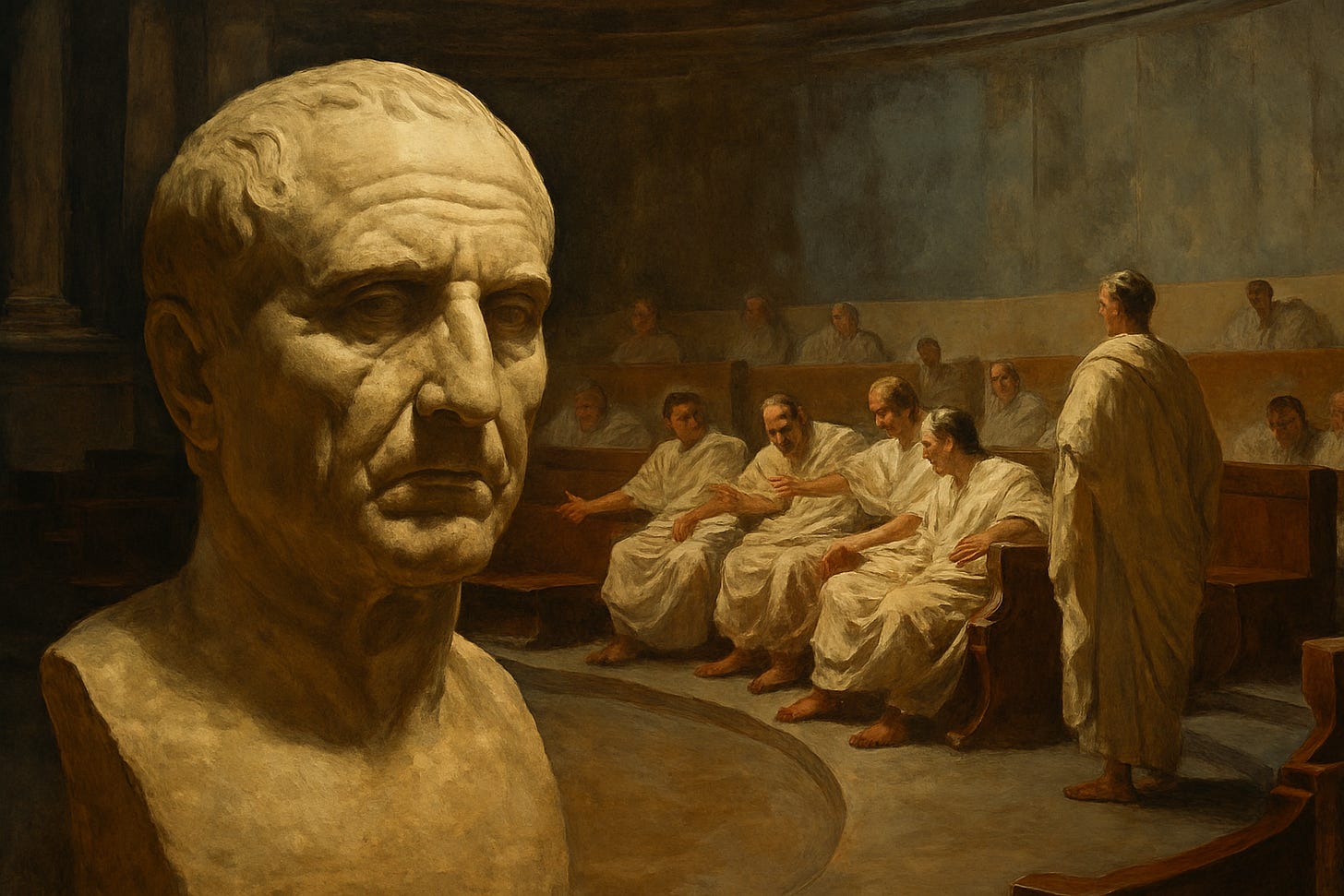No Republic is Eternal
What the Fall of Rome’s Republic — Long Before the Empire — Can Still Teach Us
Comparing the decline of America to the fall of Rome has long been an intellectual sport, played by everyone from serious historians to “end-is-nigh” preachers.
But most of them focus on the Imperial era, when the Empire began to crack apart — barbarian invasions, emperors driven mad by power, the long slide into the so-called Dark Ages.
That’s not the st…



